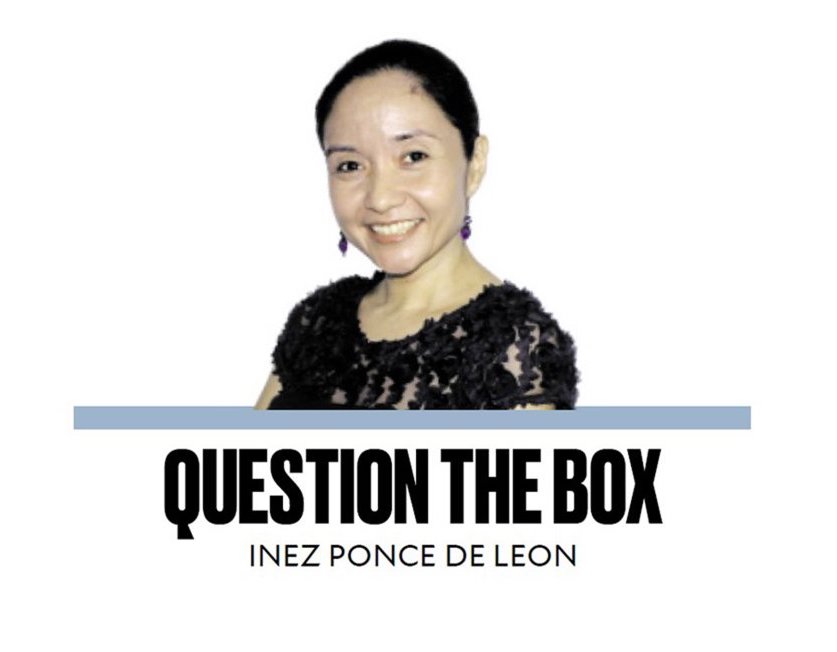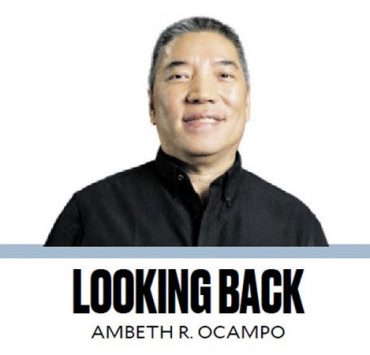Watching for moments of grace

Last week’s column generated quite a conversation online. I was nearly thankful until I realized that the exchanges were mainly on a quote from the column, rather than the entire column itself. People were making conclusions on a few words, without having read the whole piece—ironic, for an article on reading comprehension!
This disappointment brought to mind some things that my colleagues and I sometimes see in our students. Our students grow argumentative over a few phrases that they read or give up reading an important text when the first sentence doesn’t hook them in. My dance students sometimes can’t tell right from left.
Elsewhere, our students bump into people and are surprised when they see other humans. They wonder why we reprimand them for sitting in hallways, blocking walking paths, using long extension cords for their laptops across rooms where people pass, or talking in unmodulated voices while classes are going on. They don’t know how to write formal letters, or simply attach files to an email absent a message.
This is not unique to our students. On our train systems, people don’t know how to queue and barge into the train as people are exiting. In conversations, people lead with “It’s actually simple …” or “The root cause of all this is …” instead of first examining people’s arguments and accepting that many of our problems are far more complex than they know how to measure and articulate.
A pedestrian observer might chalk it up to being inconsiderate: People of all ages think they’re alone and function as though no one else matters. That same observer might blame kids’ use of social media, older students’ immersion in online classes, younger adults who are jaded, older adults who feel entitled to their authority.
There are a few things, however, that don’t fit cleanly into this inconsideration narrative. Lately, more students cram their schedules into nine-hour days: they want to get all classes over with, with no breaks, so that they go to school only twice a week—and this, even in students who live right across our campus.
Outside, people bump into us on the street while speeding to a destination. Others go to weekly meetings with unenthusiastic people who are there to meet an attendance requirement. Still others are defending their support of this or that politician, all because they spent more time clinging to their belief than the politician did in doing anything worthwhile for the country.
I realized what the link was one Sunday, as I sat at Mass and listened to the homily of Fr. Francis Teo, one of our priests at Our Lady of the Pentecost. The Gospel then was all about being watchful, for we know not the hour and the time. It would have been easy for Father Teo to talk about being vigilant about one’s doings, but he took a different route: He looked at another meaning of the word “watchful” by telling us a story of one of his greatest regrets.
When he was a missionary in Kenya, he got into a deep misunderstanding with a seminarian, with whom he was very close. The quarrel was so bad, Father Teo didn’t even see the seminarian off as the latter traveled hundreds of miles to take an exam in the city.
On the way, the van carrying the seminarian and his friends collided head-on with a truck, killing the seminarian instantly.
Being watchful, Father Teo said, was not letting opportunities pass us by. He would have had an opportunity to make peace with the seminarian, but he turned his back and faced a lifetime of regret. He was not watchful for the moment of grace.
The uniting thread of rushing to create responses and espouse emotions based on so little information, the physical incivilities, the intellectual cramming—all these might point to a routinization of our lives, where we want to see results while ignoring the process. All these show a lack of openness to grace.
Maybe it’s the grace of new learning, new challenges to test our mettle. Maybe it’s the grace of listening to people who are unlike us, of wanting to explore unfamiliar places and solutions to problems, of admitting that what we knew yesterday is wrong and that we must be better today. Maybe it’s the grace of discovering that we actually exist, in space and time, as individuals and humans with actual bodies.
We can blame overprotective parents, a society that prizes blind obedience, or uncritical consumption of social media. But we must blame all these factors equally, and many more, because they’ve turned many of us into mere machines living under the illusion of urgency, rather than lifelong learners who can embrace the world’s complexities and never give up asking questions.
It’s not about stopping to smell the flowers. This assumes that there is always beauty hidden in plain sight, and thus reduces life to seeking out pleasures. We need to acknowledge that many of us have become uncaring and watchful for our benefit, but not joyfully vigilant for moments of grace that can appear even when there is neither beauty nor goodness to be seen.
iponcedeleon@ateneo.edu


















